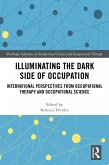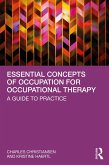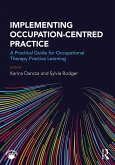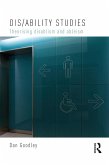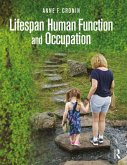Comprising 40 chapters, the book is divided into five sections:
- Section 1: Overview of Human Occupation. Introducing the occupational therapy field and its conceptual landscape, including different models of therapeutic practice and practice reasoning
- Section 2: Contemporary Perspectives on Human Occupation. Including critical perspectives on disability and race and the philosophical foundations of occupational science
- Section 3: Principal Concepts. Explaining the conceptual language of human occupation across key person, social, psychological, physical, performance, and environmental issues
- Section 4: Human Occupation across the Lifespan and Life Course. Covers human occupation from infancy to later adulthood
- Section 5: Domains/Types of Human Occupation. From sleep to play, sexuality to social participation, and education to work
Uniquely international in scope, each chapter in this edited book includes learning objectives, key terms, summary dot points, review questions, and a list of additional online resources for readers to refer to. This is a complete resource for anyone beginning an occupational therapy course, clinicians seeking an accessible reference work to support their practice, or occupational scientists needing to refer to contemporary occupation-related concepts.
Please note: Section 5 of this book can be accessed on the book's page on Routledge.com by clicking on 'Support Material', then the link to 'Routledge Resource Centre'.
For the PowerPoint slides, please click on 'Instructor and Student Resources'.
Dieser Download kann aus rechtlichen Gründen nur mit Rechnungsadresse in A, B, BG, CY, CZ, D, DK, EW, E, FIN, F, GR, HR, H, IRL, I, LT, L, LR, M, NL, PL, P, R, S, SLO, SK ausgeliefert werden.




